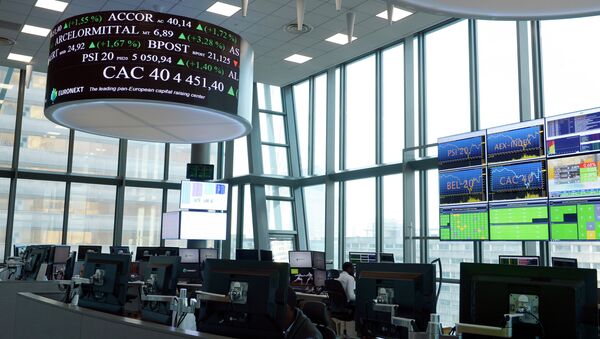Hopes of a stimulus from Beijing authorities were dashed on Tuesday as China’s equity markets suffered a further eight percent drop overnight. The pan-European FTSEurofirst 300 index rose 2.7 percent, recouping around half of the 5 percent-plus it lost the previous day as London, Paris and Frankfurt bounced 2.4 to 2.9 percent.
Hans Peterson, global head of asset allocation at SEB investment management said that, under current circumstances, Europe's steady if unspectacular economic backdrop made its share markets relatively attractive.
"We still need to see some fundamental proof of stability (in emerging markets) but Europe (equities)… seem to be at a very good point. So I would prefer to go into them first," he told Reuters.
"Impressive Support"
However, underlying the crisis in the markets is a struggle within China: a political establishment framed by single party rule and the demands of a global market-led emerging nation. Professor Ngaire Woods, Dean of the Blavatnik School of Government at Oxford University, told the UK Today program: "The Chinese government have enjoyed impressive support from a lot of their population by continually delivering the goods.
"The politics of that is really important because the Chinse government has learnt very rapidly over the last weeks that it can’t put brakes on the rollercoaster of the market. It can’t control and contain the market forces that it’s unleashed to its benefit during the upswing.
"If you ask people in Beijing and beyond what they’re really worried about, it’s contaminated food, it’s the air and water pollution that’s come from this massive industrialization. It’s the things that government itself has to fix. And the government’s going to have to start delivering on those," Professor Woods said.
“Asia Tigers”
In its latest assessment of the Chinese economy, the International Monetary Fund predicted a period of slower growth which is needed in the near term to restore the economy to equilibrium. "In the medium term, growth will slow as China moves closer to the technology frontier, but a steadfast implementation of reforms can ensure that China follows the path of the 'Asia Tigers' and achieves successful convergence to high-income status," it said.
As world markets recover from the jitters caused by the Chinese equity market, the Beijing authorities will have to begin balancing its political imperatives as a single party state — with its emerging role as a global trader in a market-led economy.



